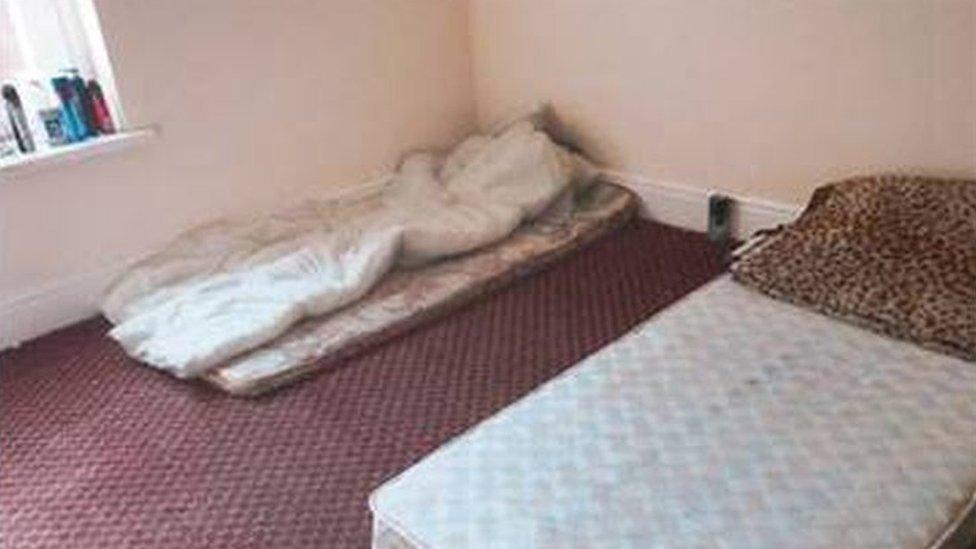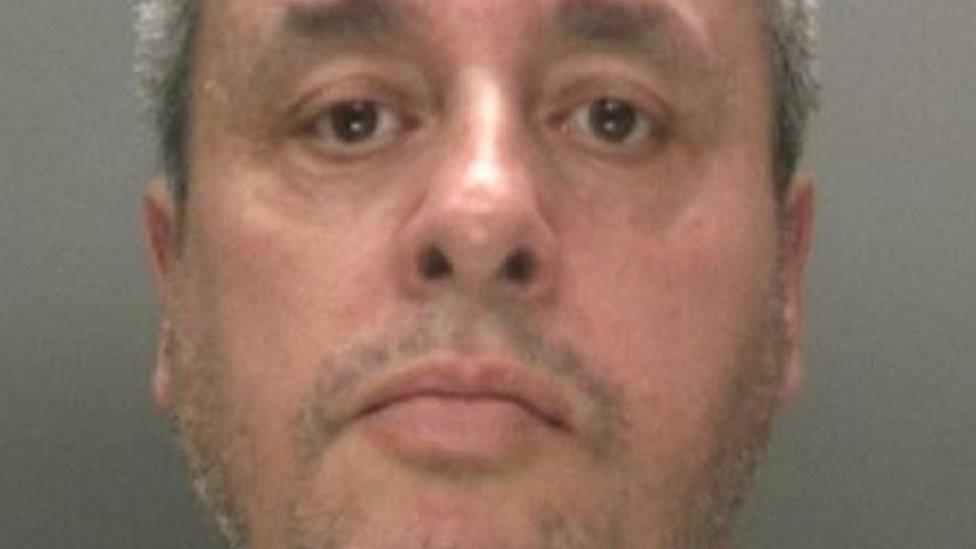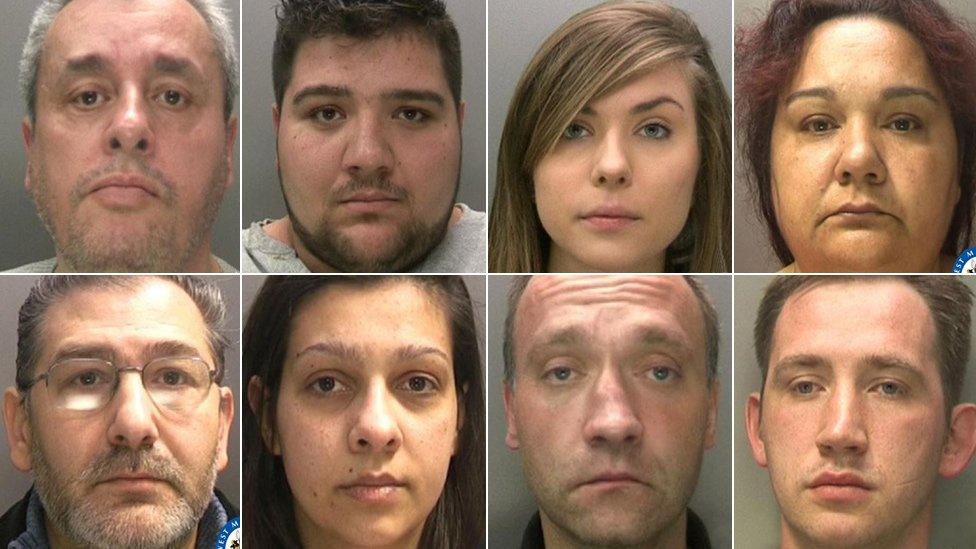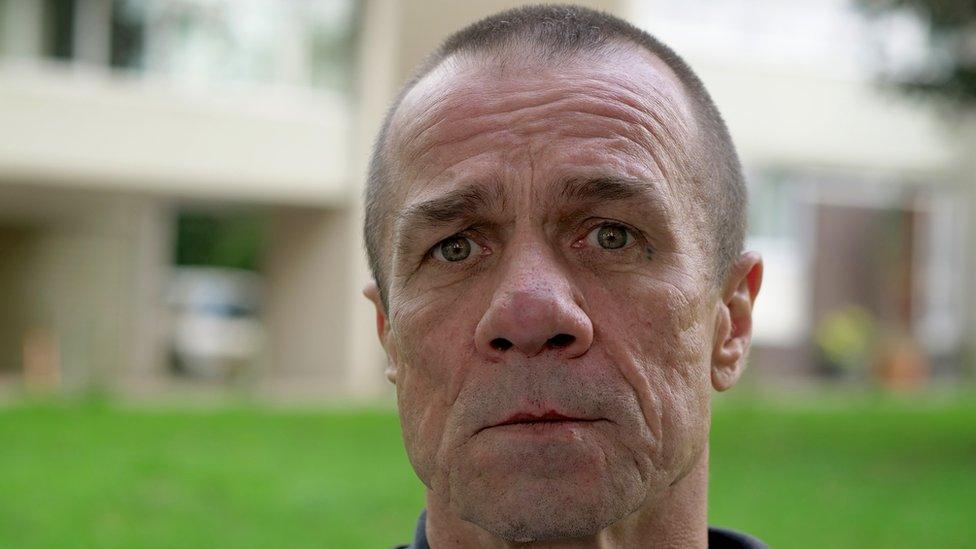More slavery network gang members convicted
- Published

Images of living conditions have been released
Three more members of a gang behind the largest human trafficking ring ever exposed in the UK have been convicted.
Vulnerable people were tricked into coming to England and then put to work in the West Midlands while housed in poor or unsanitary accommodation.
Several gang members, connected to two Polish crime families, were jailed in July 2019. It is thought there were more than 400 victims.
Three more were convicted last week and will be sentenced at a later date.
Many of their victims were "homeless, vulnerable, and desperate to earn money," the CPS said.
One victim was recruited in Poland with the promise of £300 to £450 a week and accommodation in the UK and brought to a two-bedroom house with 11 people living there with no beds, no heating and no hot water or cooking facilities.
Over three weeks he worked 12 to 13 hours a day and received £10 in total.
David John Handy, 54, of Oxford Street, Penkhull, Stoke-on-Trent, and Mateusz Natkowski, 39, were found guilty and Lukasz Wywrinski, 38, pleaded guilty.
In a Birmingham Crown Court case heard at Coventry Crown Court last week, Handy, described by the CPS as the gang's British co-conspirator, was convicted of three charges, including conspiracy to acquire criminal property.
He operated "as a seemingly legitimate employer providing work for those being exploited", the CPS said.
Natkowski, of no fixed abode, was found guilty of three charges, including conspiracy to require another to perform forced or compulsory labour and conspiracy to control another for the purposes of labour exploitation.
Both of those were also among charges that Handy was convicted of and the six offences that Wywrinski pleaded guilty to at an earlier hearing.

People were forced to work and housed in poor or unsanitary accommodation, the Crown Prosecution Service said
Slavery charity Hope for Justice said it was "proud" of its role in working alongside West Midlands Police and the CPS "to bring an end" to a network's activities.
Neil Fielding, specialist prosecutor from CPS West Midlands Complex Casework Unit, said the scale of suffering a gang "inflicted on huge numbers of mainly vulnerable people is difficult to comprehend".

Follow BBC West Midlands on Facebook, external, Twitter, external and Instagram, external. Send your story ideas to: newsonline.westmidlands@bbc.co.uk, external
Related topics
- Published30 July 2019

- Published5 July 2019

- Published5 July 2019
